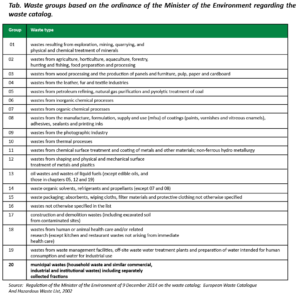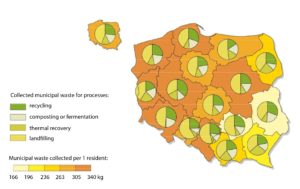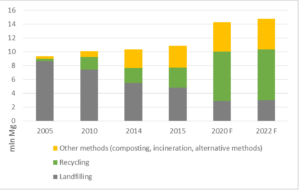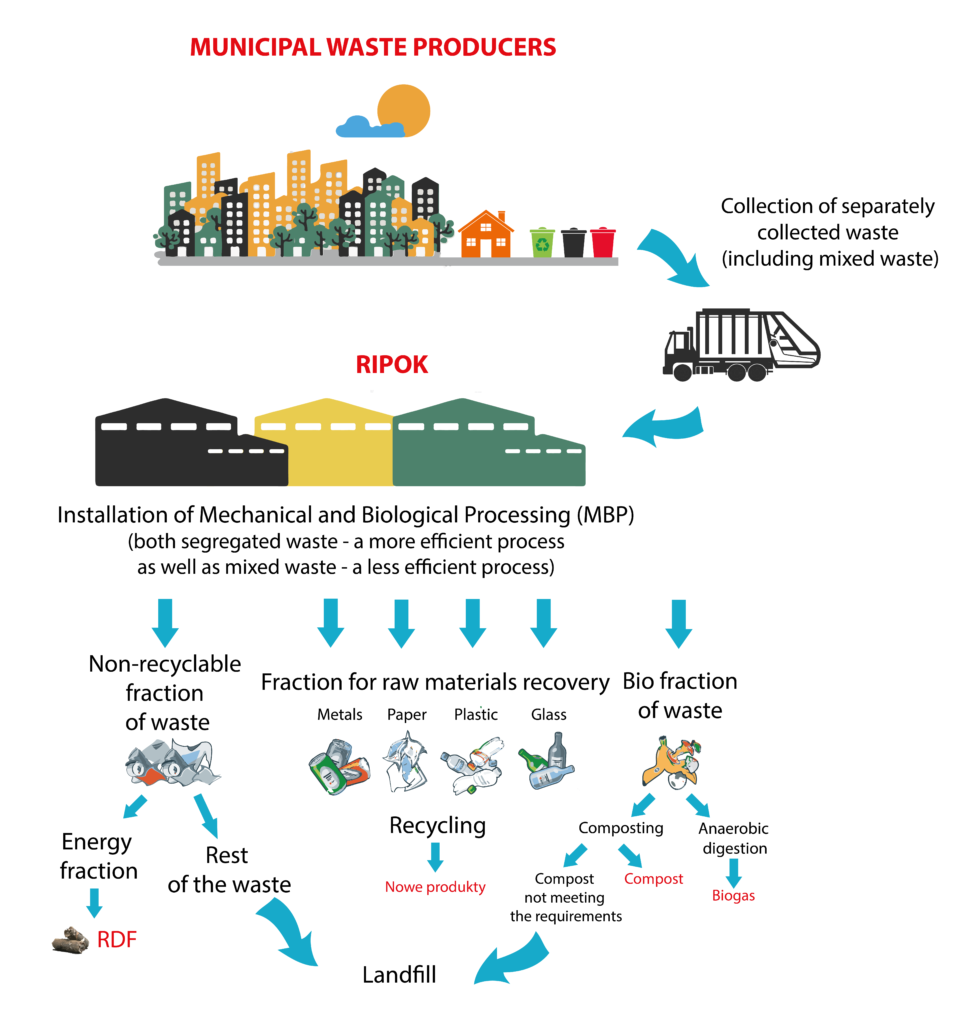The waste management market covers the entire country. Wastes are classified depending on the sources of occurrence, degree of nuisance or creating threats to human life or health and the environment. In the environmental sector, waste is classified as substances from production or consumption that pollute the environment. In Poland, on the basis of the ordinance of the Minister of the Environment of September 27, 2001, waste depending on the source of their generation is classified into 20 groups.

Waste related to non-industrial human activity, produced by all residents of the country is named municipal waste. The rest of the article will be devoted to this type of waste.
According to the Central Statistical Office, in 2015, 10.8 million tonnes of municipal waste were collected in Poland (an increase of 5.2% compared to 2014). Polish resident produces an average of 283 kg of municipal waste. Most waste is generated in Lower Silesia (340 kg per capita), and the least in Świętokrzyskie voivodship (166 kg per capita). The volume of waste generated by us assumes a continuous upward trend.
Despite increasing environmental awareness in our country and EU regulations regarding the increase of recycling levels, nearly half of municipal waste produced in Poland goes to landfills.
Fig 1. Municipal waste management in 2015, by voivodships

Source: Central Statistical Office
The municipal waste collection and treatment system in Poland is the municipality’s tasks. The municipal government is not only responsible for organizing the collection of municipal waste from property owners, but also for most aspects of waste management, including organizational and investment processes. The commune must provide conditions for achieving appropriate levels of recovery and recycling, preparation for re-use and recovery by other methods, limiting the mass of biodegradable municipal waste transferred to landfill, etc.
The main tasks of individual elements of the waste management system in Poland
Fig 2. Increasing Amount of waste in Poland

Property owner:
- produces waste
- pays the municipality for waste management. The size of the fee is determined by the commune
Commune:
- defines the conditions for receiving waste from property owners
- specifies the amount of the fee for waste management
- selects the entrepreneur collecting the waste from the property owner
RIPOK (Regional Waste Processing Facilitiy), which accept and process waste from an area inhabited by at least 120,000 people, also plays an extremely important role in the waste management model in Poland.
RIPOK:
- processes waste
- landfills waste
Metal, plastic, glass and paper waste are recycled, the biological waste fraction can be composted or can be a feedstock for biogas plant. The problem is part of the waste that is not recyclable. From this fraction, the waste treatment plants are still able to separate the high-calorific waste, named RDF (refuse derived fuel). Currently, the management of calorific waste fraction in an environmentally and economically way is a big challenge for RIPOK.
Fig. 3. Scheme of operation of the municipal waste management system in Poland

Where are the waste incineration plants in this system? Incinerators in the Polish system are supra-regional waste treatment installations that should combust a non-recyclable fraction. Due to the inefficient selective collection of waste, mixed wastes are sent to the incineration plants.
The intermediate point on the municipal waste market is PSZOK (Point of Selective Waste Collection) – this is a place in the commune where residents can leave municipal waste collected in a selective manner (eg large-size waste, used batteries and accumulators, used electrical and electronic equipment, expired drugs and chemicals).
Sources:
- Own materials
- Municipal waste management market in Poland. Perspective 2030, Tomasz Styś Robert Foks, Instytut Sobieskiego 2014
- Law: Act of 13 September 1996 on maintaining cleanliness and order in municipalities
- The Act of 14 December 2012 on waste
- Regulation of the Minister of the Environment of 9 December 2014 on the waste catalog
